A thriving racial, economic, and gender justice movement that has all the resources and networks it needs to improve the health, safety and economic prosperity of New Yorkers by advancing racial, gender and economic justice.
Our grantee partners are based all over New York.
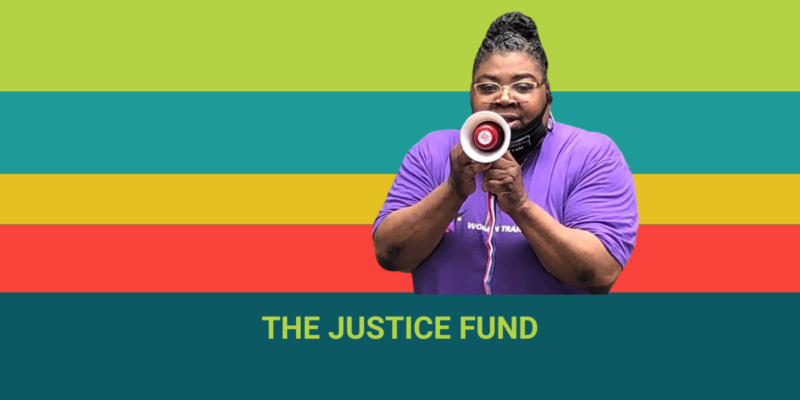
In 2018, The Foundation launched the Justice Fund, a collaborative fund that provides resources to organizations working to reduce the involvement of women, girls, and gender-expansive people in all aspects of the criminal legal system.
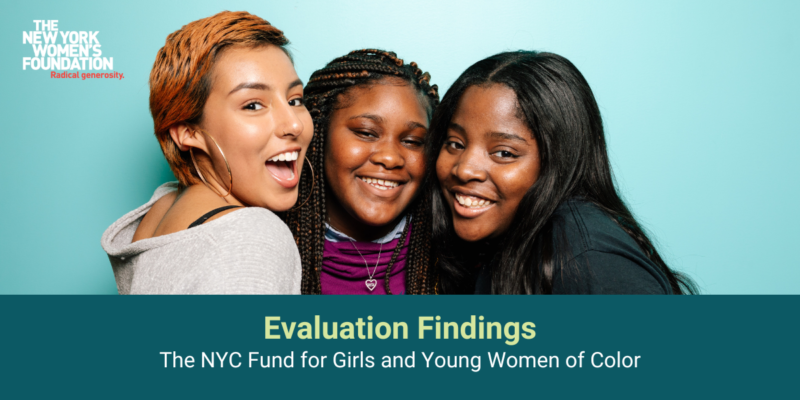
In the spirit of collaborative learning, The New York Women’s Foundation recently evaluated the first seven years of the NYC Fund for Girls and Young Women of Color.
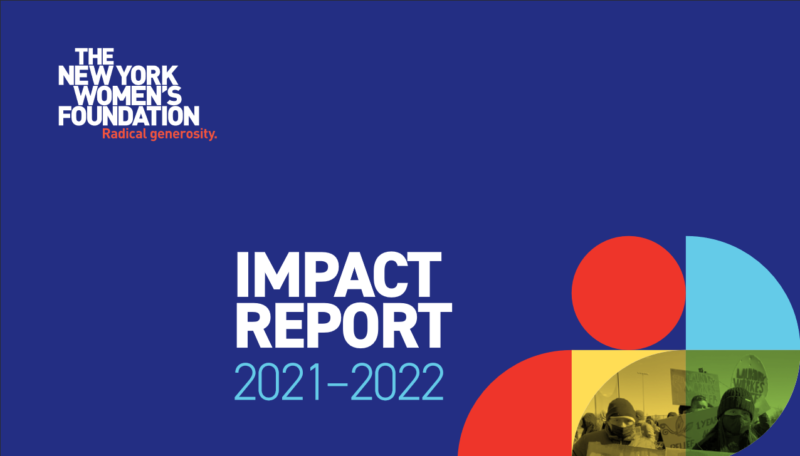
We are deeply invested in creating a New York City where all women, girls, and gender-expansive people can thrive. Read about our impact.
Presented by the Women’s Funding Network, Feminist Funded ‘23 is the largest gathering of global leaders in feminist philanthropy, working to co-create a more just, equitable, and safer world for all. The Foundation’s Ana Oliveira joined in the discussion.
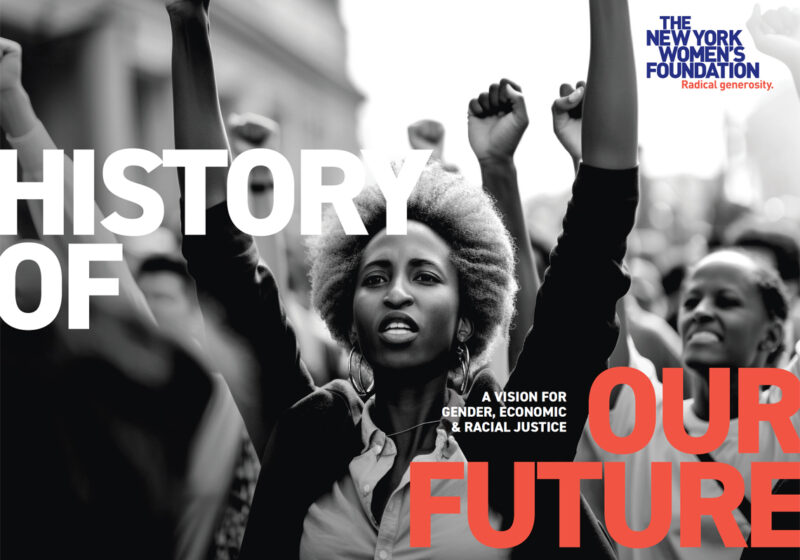
History of Our Future is our bold strategic plan that outlines how we envision gender, economic, and racial justice for women, girls, and gender expansive individuals.
On April 26, 2023, The New York Women’s Foundation presented findings from the landscape analysis report, The State of Women and Girls with Disabilities in New York, at the Ford Foundation in conversation with movement leaders.
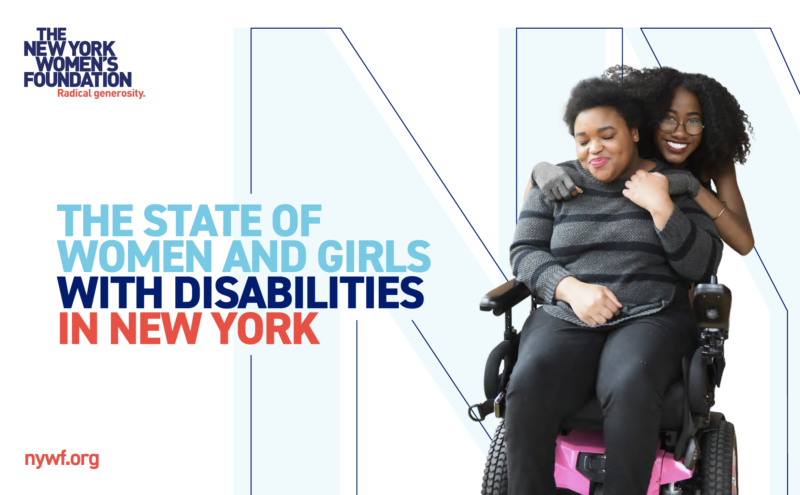
This report presents a set of recommendations that explore the needs of women, girls, and gender-expansive people of color with disabilities and the opportunities for further grantmaking throughout New York state.
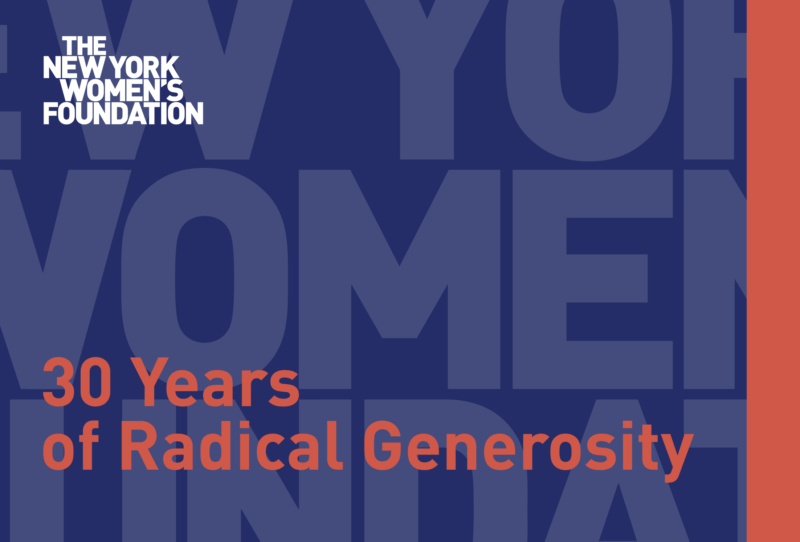
Read our 30th Anniversary Report to learn more about the history of The New York Women’s Foundation and what we’ve accomplished in the past three decades.
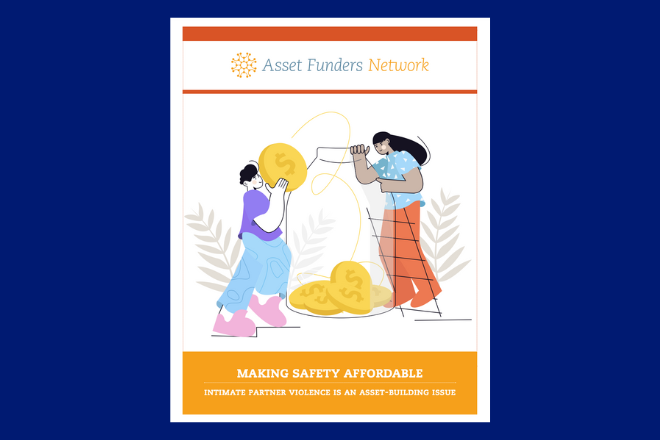
The New York Women’s Foundation funded this report from the Center for American Progress, which discusses that to create more equitable education systems, policymakers must understand how racism, ableism, and sexism intersect and negatively affect Black disabled girls’ ability to attain an education.
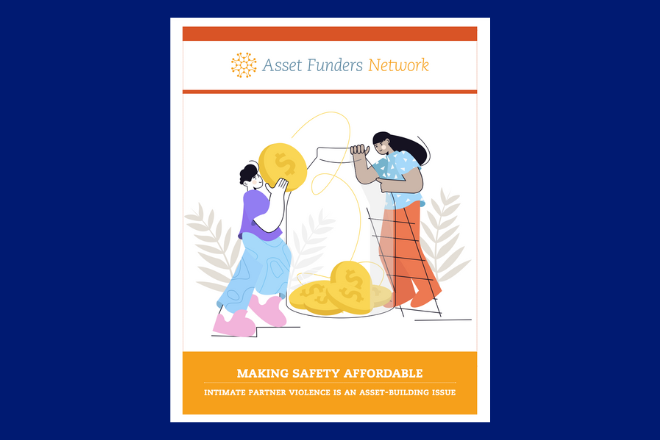
Our response to intimate partner violence (“IPV”) isn’t working – we approach IPV solely through crisis intervention, when in reality it is an asset-building issue.
The #1 reason survivors stay in or return to abuse is because they simply can’t afford to leave or stay safe. This means that in order to disrupt the cycle of violence in the U.S., we must prioritize survivor wealth.
View the National Survivor Financial Security Policy Map and Scorecard
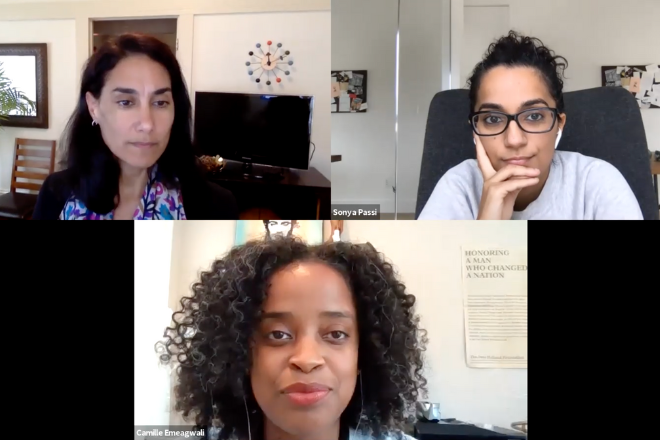
On October 8, 2020 Camille Emeagwali, Senior Vice President, Programs & Strategic Learning at The New York Women’s Foundation, joined Sonya Passi, Founder and CEO of FreeFrom, to discuss Asset Funders Network’s publication Making Safety Affordable: Why Intimate Partner Violence is an Asset-Building Issue, which identifies innovative ways funders can support the financial security and long-term safety for survivors.

For 25 years, The New York Women’s Foundation has partnered with New York City based nonprofits and programs to advance economic security and justice, eliminate gender-based violence, and secure sexual rights and reproductive justice for women, girls, and gender non-conforming individuals.
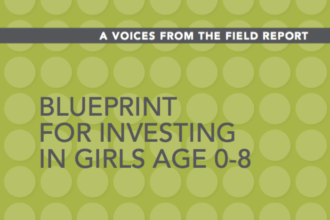
Experts in early childhood development explain that for girls, the period between birth and age 8 comprises a coherent, unified period of both extraordinary potential and extreme vulnerability. Given a healthy environment and nurturing round-the-clock care, girls innately evolve from totally helpless, self-involved infants into third graders of remarkable competence—cognitively, socially, emotionally, physically and creatively. Denied that vital foundation, their miraculous developmental trajectory can be gravely compromised or even completely derailed. Promoting little girls’ strong progress thus depends absolutely upon making sure that their main caregivers can give them what they need.
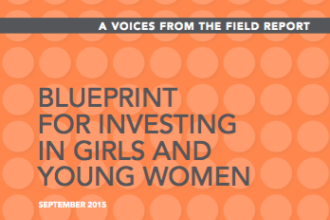
Girls and young women comprise about 10 percent of NYC’s total population. But that statistic gives little indication of their importance. Enter any low-income, immigrant community or community of color, and you will see girls shouldering huge responsibilities with minimal acknowledgment and support. Barely into their teen years, they are minding younger siblings and managing household chores. In mid-adolescence, they are taking on after-school jobs to supplement household incomes. As soon as they master English, they are serving as interpreters and advocates for older relatives. And—barely out of their adolescence–many are raising children of their own.
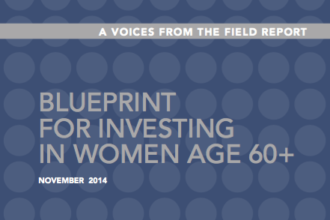
Older women—particularly low-income older women of color and immigrant older women—represent a significant and growing segment of NYC’s population. They play vital roles families across some of the poorest communities of the city—managing housekeeping and child-minding duties so adult children can work, single-handedly raising some 100,000 grandchildren, and caring for dependent relatives of all ages. Many are the pillars of faith and community organizations. Some still manage paid work. And most fill these critical functions while contending with steep challenges—poverty, compromised health, ongoing losses of social networks, and inadequate care for their own needs.
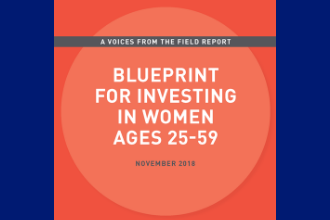
In New York City, women of color and immigrant women, age 25-59 bear the main brunt of responsibility for both raising and providing for their own families; for furnishing the labor force that undergirds the economy; and for leading the projects that sustain their communities.
For more than three decades, a roster of determined grassroots women-led organizations have worked to improve the economic security, safety, health, and empowerment of this critical segment of the population. Through advocacy, community organizing, and direct service programs, they have been helping women and LGBTQI individuals across the city’s low-income communities to access better employment options, escape and heal from violence, enjoy better health and reproductive health, and achieve more meaningful representation in vital decision-making forums.
The report offers an overview of the demographics and situations of women and LGBTQI individuals whom the organizations work with, analyses their main areas of focus and descriptions of their most effective programs, and provides recommendations for ongoing or new action.
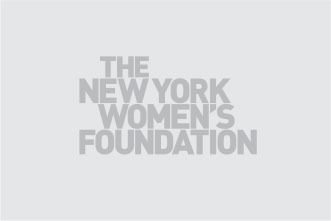
The NYC Fund for Girls and Young Women of Color is a collaborative effort that brings together a growing group of diverse philanthropic funders to promote the progress of young women of color whose ambitions, voice, capacities and identities have long been dismissed or derailed.
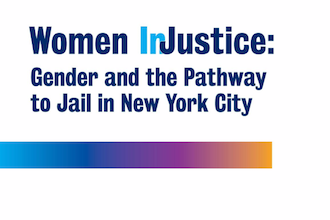
A new report, Women InJustice: Gender and the Pathway to Jail in New York City, concludes that equal justice is not possible using a one-size-fits-all approach. Because women have not benefited from criminal justice reform to the same extent as men, the report urges that reforms must meet the gender-specific needs of the people who enter the system.
The report from The Prisoner Reentry Institute of John Jay College of Criminal Justice (PRI) and commissioned by The New York Women’s Foundation, provides an in-depth academic exploration of the journeys that lead women to Rikers; the needs of women in the system; and gender-specific system reforms.
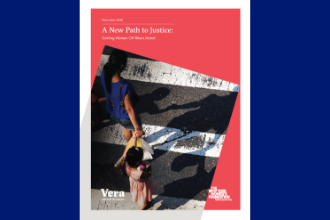
Each year, more than 5,500 women are admitted to the jail at Rikers Island. And while there has been much activity throughout New York City on criminal justice reform in recent years, including consensus among policymakers to close Rikers Island and cut the number of people involved in the system by half within a decade, gender-specific solutions remain elusive.
To address this, The New York Women’s Foundation has partnered with the Vera Institute of Justice to identify gender-informed strategies for getting New York City women disentangled from the criminal justice system. A culmination of dialogue among more than 20 nonprofit organizations and New York City agencies, this report reflects our commitment to ensure that those with expertise on systemic solutions for women have the opportunity to inform thought leadership in the field.
This funder briefing, originally held on April 27, 2022, discusses updates from the criminal justice field on women, their journey on the inside, and coming home.

Asset Funder Network’s latest report, in collaboration with the Closing the Women’s Wealth Gap (CWWG) and the Insight Center for Community Economic Development reveals the current economic reality for millennial women and the primary drivers contributing to their wealth inequities.
Lead funding for the series of briefs is made possible by a generous donation from the Texas Women’s Foundation.
Additional funding for this brief was provided by JPMorgan Chase and the New York Women’s Foundation. The opinions expressed in this report are those of AFN and CWWG and do not necessarily represent those of the sponsors.

A budget is one of the principal ways in which governments express their priorities and values. With this in mind, The New York Women’s Foundation, in partnership with the Fiscal Policy Institute, reviews the proposed Governor’s Budget to determine its impact on NYC’s women and families. When viewed with a gender lens, the Governor’s 2013-2014 budget impacts the city’s low-income women and their families in many ways, from decreased resources for low-income women seeking to get a foothold in the job market, to reduced funding for a wide range of essential support services, including child care.

A budget is one of the principal ways in which governments express their priorities and values. With this in mind, The New York Women’s Foundation, in partnership with the Fiscal Policy Institute, reviews the proposed Governor’s Budget to determine its impact on NYC’s women and families. When viewed with a gender lens, the Governor’s 2013-2014 budget impacts the city’s low-income women and their families in many ways, from decreased resources for low-income women seeking to get a foothold in the job market, to reduced funding for a wide range of essential support services, including child care.

A budget is one of the principal ways in which governments express their priorities and values. With this in mind, The New York Women’s Foundation, in partnership with the Fiscal Policy Institute, reviews the proposed Governor’s Budget to determine its impact on NYC’s women and families. When viewed with a gender lens, the Governor’s 2012-2013 budget impacts the city’s low-income women and their families in many ways, from decreased resources for low-income women seeking to get a foothold in the job market, to reduced funding for a wide range of essential support services, including child care.
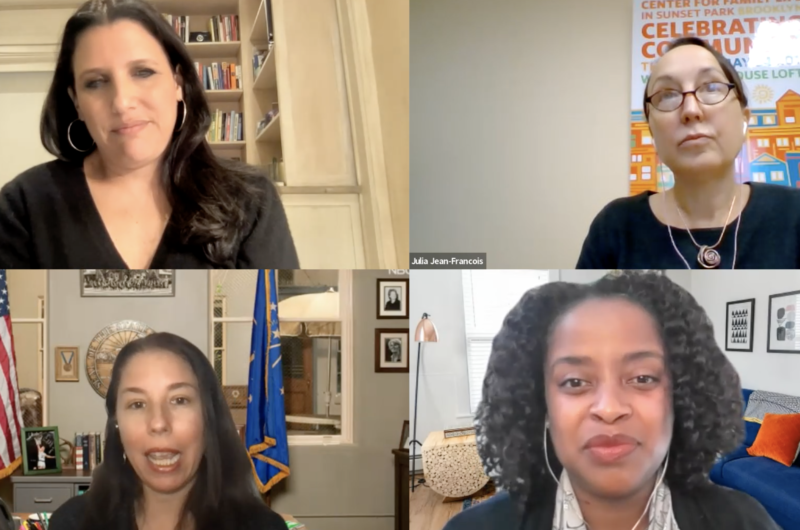
On January 11, 2022, funders from the Greater New York area joined join AFN and the New York Women’s Foundation to check-in on how the caregiving infrastructure is changing and what opportunities exist for philanthropy to support better care.
Camille Emeagwali, Senior Vice President Programs and Strategic Learning, The New York Women’s Foundation
Julie Kashen, Director of Women’s Economic Justice and Senior Fellow, The Century Foundation
Dina Bakst, Co-Founder and Co-President, A Better Balance
Julia Jean-Francois, Co-Director, Center for Family Life

This brief was developed in partnership with the Samuel DuBois Cook Center on Social Equity at Duke University, Asset Funders Network (AFN) and in collaboration with Closing the Women’s Wealth Gap Initiative (CWWG).

Prosperity Together is the collective effort of public U.S. women’s foundations to raise awareness of their role in improving the economic security of low-income women and their families.

The New York Women’s Foundation is a voice for women and a force for change. We are a cross-cultural alliance of women catalyzing partnerships and leveraging human and financial capital to achieve sustained economic security and justice for women and girls.

The New York Women’s Foundation (NYWF) is a cross-cultural alliance of women promoting economic justice for underresourced women, families, and communities in New York City

While New York City’s job growth has exceeded that of the nation over the past year, unemployment remains high, poverty has risen sharply from 19 to 21 percent in the first two years following the onset of the recession, and hardships have mounted for many New York City women, families and children.
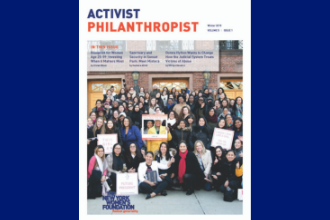
In this issue, we are excited to showcase the work of our grantee partners and leaders working to advance economic, gender, and racial justice in New York City and beyond. Features include an op-ed from Vivian Nixon, Executive Director of College and Community Fellowship; profiles of grantee partner Mixteca, author Donna Hylton, Cause Effective, Daisy Khan of Women’s Islamic Initiative in Spirituality and Equality (WISE) and Manizha Naderi of grantee partner Women for Afghan Women; a Q&A with Afua Atta-Mensah, Esq., Executive Director of grantee partner Community Voices Heard; and recaps of the Radical Generosity Gala and Neighborhood Dinner.

Our 2018 Spring/Summer issue of Activist Philanthropist is here! Inside you’ll find an article on Radical Generosity by our President and CEO, Ana Oliveira, profiles of our volunteers, and more!
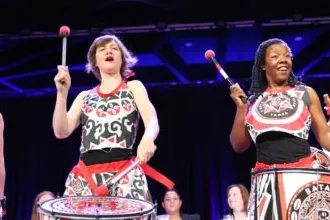
Our first issue of Activist Philanthropist in 2017 features an interview with Vivian Nixon, Executive Director of College and Community Fellowship by Feminista Jones, a profile of Randi Zinn by LaToya Jordan, a Q&A with poet Camonghne Felix, a conversation recap of our In Focus Where Women Stand: 100 Days of the New Administration event by Michele Thomas, and an interview with our former board chair and 2017 Celebrating Women Breakfast Vision award recipient, Anne Delaney, by IGNITE! fellow, Sayoni Nyakoon.
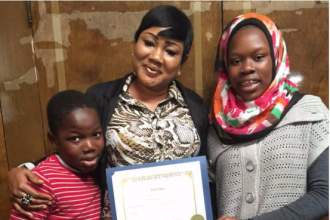
The last issue of the Activist Philanthropist in 2016 features Jessica González-Rojas on her leadership and the work of her organization, National Latina Health Institute for Reproductive Health. Nicole Mason examines what a Trump administration could mean for women, families and communities on critical issues including reproductive rights, education, and healthcare.
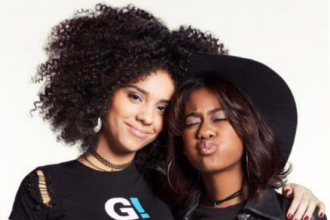
The August 2016 issue of Activist Philanthropist, highlights writers, thinkers, and leaders who are at the forefront of philanthropy, community, and social justice efforts for women nationwide. Jean Shafiroff, Monique Morris, and Nicole Mason have each shared with us insights from their books on topics including women’s philanthropy and equitable education as the key to success for women and girls.
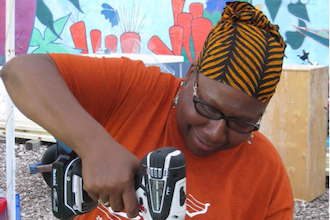
Our first Activist Philanthropist issue of 2016 includes articles on caregiving, in which Susan Leicher brings forward an unspoken issue that shapes the lives of girls and young women by highlighting the consequences of teenage girls becoming early caregivers for their families. Nicole Mason writes about police brutality in the form of sexual abuse, and the struggle for justice and accountability. Humera Afridi highlights the leadership of former Board Chair Rhonda Joy McLean, and the importance of leadership through giving.
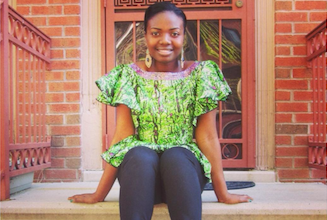
Our second issue of the Activist Philanthropist shares insights on a spectrum of topics affecting women, highlighting individuals, organizations and partnerships that are creating pathways to making the biggest difference, in a variety of ways, in the lives of women, girls and families.
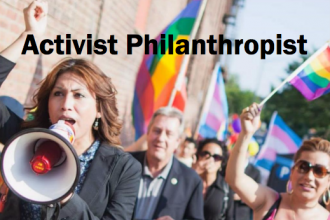
We are delighted to introduce you to the Activist Philanthropist, an e-zine that expresses our philanthropic practice at The new York Women’s Foundation. The Activist Philanthropist is a forum that celebrates those who embody philanthropy in action. The profiles and Q&A pieces in the e-zine spotlight community leaders and visionaries and encourages an understanding of philanthropy that is broader in scope.
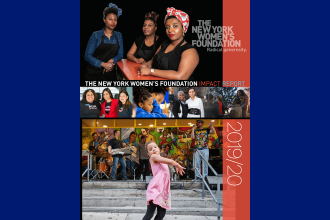
We invite you to read our Impact Report which details all of the activities that The Foundation and their grantee partners have been up to in 2019-2020.
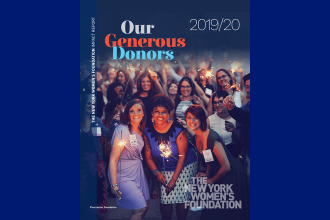
Learn more about the donors who made our work possible through their radical generosity in 2019-2020.

The Foundation creates an equitable and just future for women and their families by creating a cross-cultural alliance that ignites action and invests in bold, community-led solutions across the city.
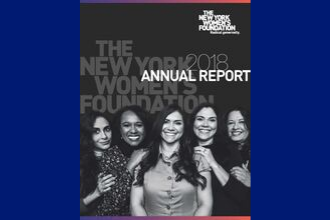
We invite you to read our Annual Report which details all of the activities that The Foundation and their grantee partners have been up to in 2018.
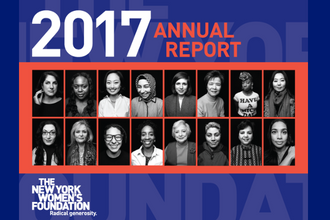
We invite you to read our Annual Report which details all of the activities that The Foundation and their grantee partners have been up to in 2017.
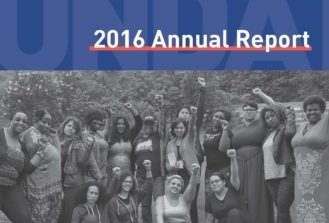
We invite you to read our 2016 Annual Report to learn more about The Foundation’s grantmaking impact and the work of their grantee partners. Click here to view our interactive Annual Report.
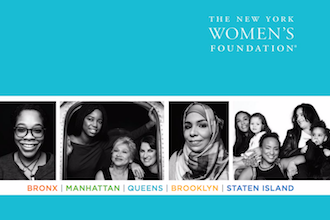
Read our 30th Anniversary Report to learn more about the history of The New York Women’s Foundation and what we’ve accomplished in the past three decades.
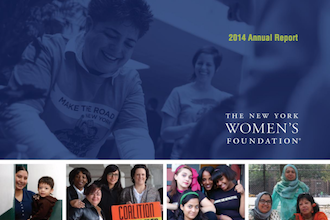
2014 was a year of transformative work for The New York Women’s Foundation. It marked the end of our bold, five-year initiative – RISE-NYC! (Respond, Inspire, Solve, Engage) – which began in 2009, during the recession, at a time of philanthropic retrenchment. Read our 2014 Annual Report to hear about the other initiatives that we supported as well as our efforts in enhancing community-led innovations.
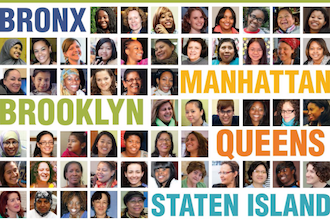
As we enter our 27th year, The New York Women’s Foundation is proud to have responded in both concrete and innovative ways to the challenges presented in 2013. We awarded a second, and even more necessary year of grants to our groups working in Hurricane Sandy Response and Recovery; expanded our “Initiative Against Sex Trafficking of Minors” and published the first Economic Security and Well-being Index for Women in New York City. Read the report to learn more about what we accomplished in 2013.
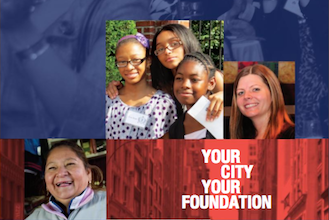
In our 26th year, we continue to hold fast to the values of the visionary women who created The Foundation, deepening our cross-cultural alliance of women and using a participatory and engaged approach to philanthropy, while at the same time, expanding our impact to create a safer, healthier and more economically just environment for women and families in New York City. Read our 2012 Annual Report for a comprehensive look at what we and our grantee partners accomplished.
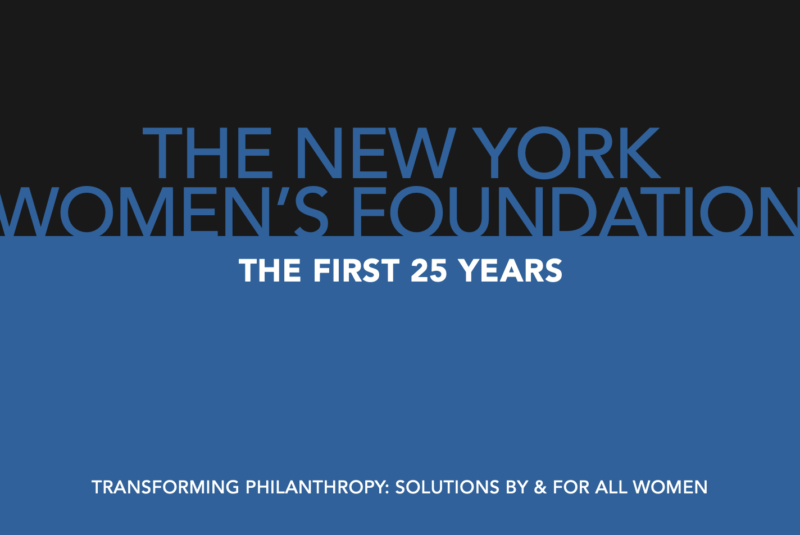
In the quarter century since The New York Women’s Foundation (NYWF) was launched by a small group of visionary women, it has matured into a significant, effective, and influential institution. Once an early entrant into a limited group of women’s philanthropic organizations, it has grown into the largest U.S.-based member of a robust international network of 166 women’s funds. Once a new face on New York City’s well-established funding scene, it has emerged as a forceful leader with a transformative approach to philanthropy and a respected imprimatur.